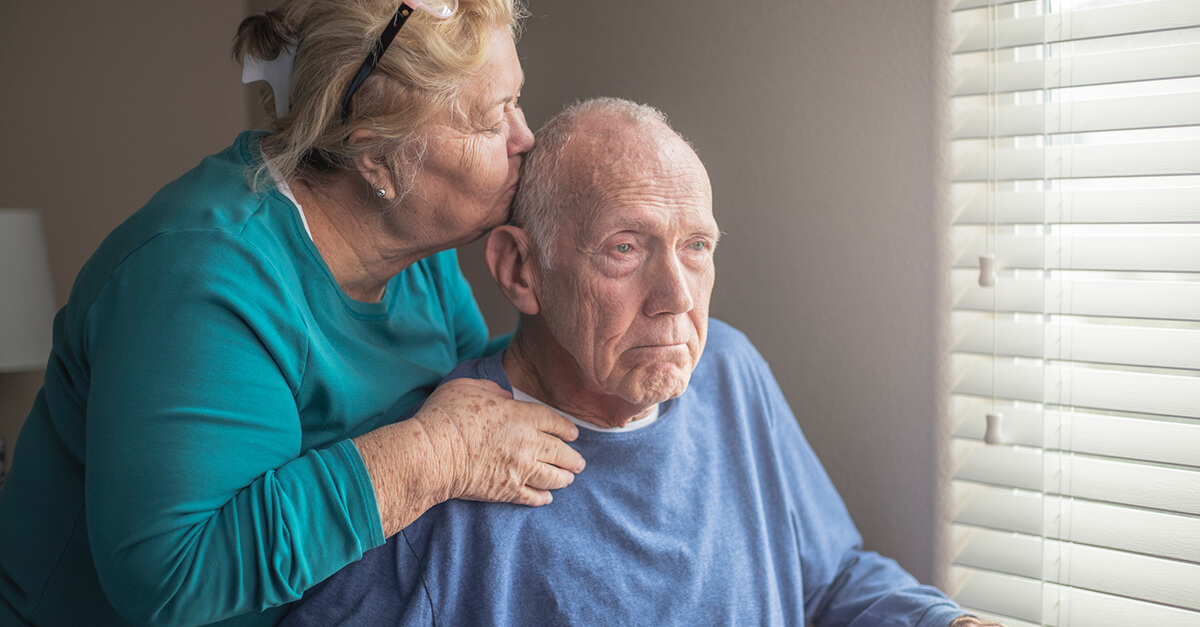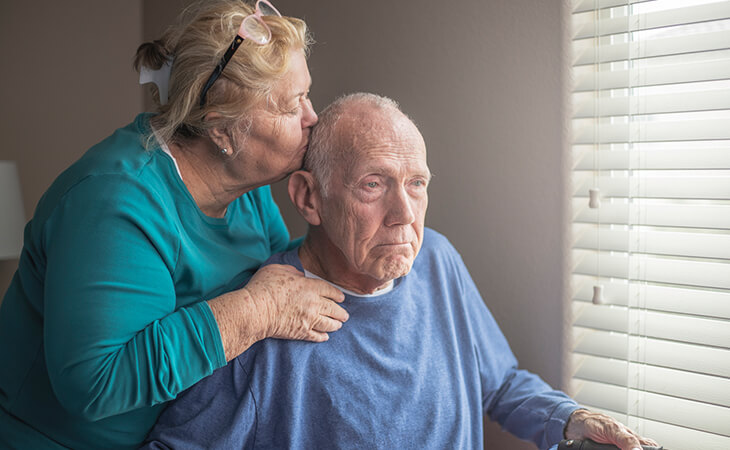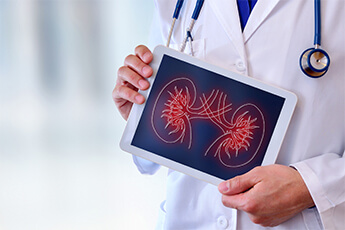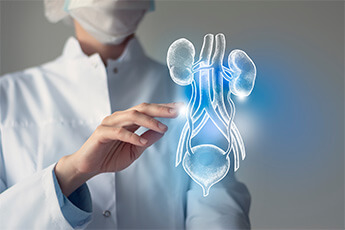Emotional support for people with kidney cancer


Mental health disorders like depression and anxiety are common among people with chronic illnesses like kidney cancer. Undergoing treatments for kidney cancer can be hard on both your physical and mental health.
From the community: “…Cancer takes a great emotional toll on its victim! But there are ways to deal with life after a cancer diagnosis. Find what works best and stick to it. Let go of the frivolous and deal with what you need to as it comes your way. The word “no” is a wonderful word and it can make life simpler. Cancer complicates so make your life as simple as possible. You don’t need any more “baggage”. Your plate is full! Realize this and let go of things and people who will bring you down! I am learning to be selfish and think of myself first. I have always been a caregiver the family “doer” but now I am redefining my role. I have to in order to keep my sanity! Depression and anxiety are the byproducts of Cancer. Keep busy and engaged for a healthy emotionally life. The mind and body are not meant to be separated. Both are of equal importance!” – Inspire member
The emotional toll of kidney cancer
A 2018 study found that more than 1 in 4 people with kidney cancer could benefit from psychosocial, or emotional, support. The study suggested that many people underestimated the emotional impacts of the disease, and therefore didn’t seek help despite the negative effects on their mental health. Study participants noted an array of stressors including anxiety, pain, nervousness, sadness, worry, and sleeping problems. All of these issues can take a toll on you emotionally.
Living with a chronic illness like cancer, as well as the fear of cancer recurrence and spread (metastases), is challenging. It’s important to seek healthy ways to cope with:
anxiety
depression
stress
Anxiety
When you’re anxious, you feel tense and can’t let go of worries. You may be fearful about the cancer returning or spreading (metastatic kidney cancer). It’s also normal to worry about the impact that cancer will have on your relationships, family, job, and finances. Anxiety can make it harder to cope with treatment side effects and make you feel less confident about treatment decisions.
Signs of anxiety include:
chest pain or heart palpitations
nausea, diarrhea, upset stomach, and loss of appetite
shortness of breath
sweating, trembling, and chills
Some anxiety symptoms like extreme fatigue and difficulty concentrating can also be side effects of cancer and its treatments. Some people experience “scanxiety.” This type of anxiety occurs when it’s time to get imaging tests to check for disease recurrence or spread. It’s important to let your doctor know about any symptoms you experience.
Many people with anxiety get symptom relief through medications, mental health counseling, and relaxation techniques like meditation or yoga. Having a survivorship care plan in place can also help you feel more in control and less anxious.
From the community: “…So all I can say is. Speak to a psychologist if you are not coping mentally. Keep yourself healthy,. When this annoying pandemic is over, live your best life. You might be lucky and not have it return. Keep positive and happy. Life is too short to live it in misery. I surround myself with family and happy and positive friends.” – Inspire member
Depression
As many as 1 in 4 people with cancer develop major depressive disorder, also known as clinical depression. This severe form of depression occurs when symptoms last for more than two weeks. You may experience:
extreme sadness
changes in appetite and sleep
difficulty focusing and making decisions
feelings of worthlessness or guilt
loss of interest in things that once brought joy
suicidal thoughts
Anxiety and depression often occur together. Treatments like antidepressants and mental health counseling can help. Another valuable resource is palliative care. A palliative care specialist provides supportive care for people with all types of chronic illnesses. They have strategies and access to resources to help you cope better with the disease and treatment side effects, thereby improving mental health.
You may also benefit from talking to other people who share the same struggles. You can join an online support group like the Kidney Cancer Association’s community on Inspire.
From the community: “…For me, the one thing that sticks out was my commitment to keeping normalcy as best I could. I had my kidney removed … I returned to work 9 days later. I had my thyroid taken out … and returned 7 days later. This was my self care. Build a support system, lean on friends/family. The emotions you have are normal and you will have good days and bad days. Remember to breath, remember it is ok to to feel the way you feel. I found using grounding techniques helpful when I felt things were getting to difficult, once I grounded myself I was able to process my feelings and turn my thoughts into positive self talk.” – Inspire member
Stress
Cancer certainly rates as one of the most stressful experiences in a person’s life. While stress doesn’t cause kidney cancer, prolonged stress can weaken your immune system. This makes it harder for your body to fight off infections and zaps your body of the energy it needs to stay healthy. Some medical experts speculate that chronic stress can promote the growth and spread of cancer tumors.
Certain stressors like the cancer or the need for certain treatments are out of your control. But you can take charge of other factors that raise stress levels. You can reduce stress by:
asking for and accepting help from others
becoming confident saying no to requests that are sure to deplete your energy or mental reserves
cutting back on unnecessary activities and obligations, and prioritizing those that matter the most
eating a kidney-friendly diet and exercising
learning relaxation techniques like meditation, deep breathing, and visualization
seeking help from a financial advisor or oncology social worker to cover medical expenses
From the community: “I am newly diagnosed (last week 3/3/21) with a Stage 1 cystic kidney cancer. It was caught at the 2.5cm tumor size by chance when I had an MRI for gallstones, further CT Scans with contrast nailed it down as a cancer. I am scheduled for a robotic partial nephrectomy... My urologist/surgeon was very positive and even though I was told I had the big "C" his 95% plus survival rate statement made me feel better. But now I am going through big mood swings, sometimes I feel good and positive and the next minute I am depressed and anxious about my cancer diagnosis and not dealing well with it. Any suggestions on how to cope? I know I was really lucky to catch it this early...” – Inspire member
Sources
Depression. American Cancer Society. February 2020.
Anxiety. American Society of Clinical Oncology. June 2019.
Depression. American Society of Clinical Oncology. August 2019.
Kidney cancer: Coping with treatment. American Society of Clinical Oncology. October 2020.
Managing stress. American Society of Clinical Oncology. July 2019.
Heid M. How stress affects cancer risk. MD Anderson Cancer Center. December 2014.
Feelings and cancer. National Cancer Institute. August 2018.
Draeger DL, et al. Analysis of psychosocial stress factors in patients with renal cancer. Therapeutic Advances in Urology. June 2018.
Disclaimer
Member comments are lightly edited for length and to remove identifying information but are otherwise reproduced as they appear in the community as part of public posts.
This content is for general informational purposes only and does not necessarily reflect the views and opinions of any organization or individual. The content should not be used as a substitute for professional medical advice, diagnosis, or treatment. Please consult your healthcare provider about any questions you may have regarding a medical condition.




